„Shakespeare kann man international überall inszenieren, weil er menschliche und systemische Konstanten beschreibt, die sehr zeitgenössisch sind.“ Die Regisseurin und Professorin des Max Reinhardt Seminars Anna Maria Krassnigg hat Shakespeares Stücke schon oft auf die Bühne gebracht. Macbeth an der Hanoi Academy of Theatre and Cinema zu inszenieren ist aber auch für die erfahrene Regisseurin ein Abenteuer – sei es aufgrund sprachlicher Hürden oder Proben in Rekordzeit. Dank der Einsatzfreude und Leidenschaft aller Beteiligten ist das Abenteuer in Vietnam – ein weiteres Mal – gelungen.
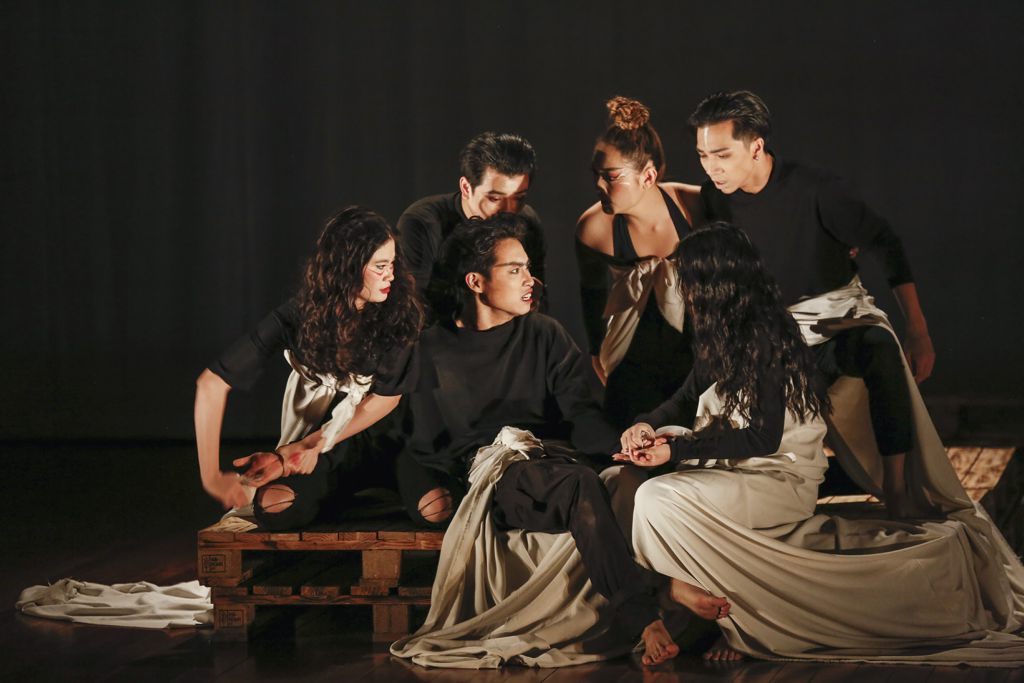
Wenn Anna Maria Krassnigg über Macbeth in Hanoi spricht, wird rasch klar, dass es sich nicht um eine gewöhnliche Lehrerfahrung im Ausland handelt. Bereits 2018 hat Krassnigg gemeinsam mit Beverly Blankenship (mittlerweile emeritierte Lehrende des Instituts für Gesang und Musiktheater der mdw) Romeo und Julia mit den Schauspielstudierenden der Academy erarbeitet. Nach dem großen Erfolg der Aufführung gab es vonseiten der Academy und der beiden mdw-Lehrenden bald den Wunsch nach einer Fortsetzung der Kooperation. Im Dezember 2022 ging schließlich Macbeth über die Bühne. Im Vorfeld gewann das Projekt den Bernd Rode Award des ASEAN European Academic University Network, einem Netzwerk österreichischer und südostasiatischer Universitäten. Der Probenplan für Macbeth war straff und die Arbeit am Stück wurde inhaltlich aufgeteilt: Krassniggs Universitätsassistentin Marie-Therese Handle bereitete den Text mit den Studierenden vor und Blankenship erarbeitete ihren Teil mit den Studierenden in jeweils zwei Wochen, danach probte Krassnigg in zwei Wochen ihre Szenen und fügte alles in den Endproben zusammen. Die knappe Zeit erforderte hohe Einsatzbereitschaft. „Wir arbeiteten dort mit sehr willensstarken und zähen jungen Menschen. Ihre unglaubliche Energie und Spielfreude zeigt sich in einer starken Präsenz im Jetzt, was im Schauspielberuf mit Talent gleichzusetzen ist“, begeistert sich Krassnigg über die Schauspielstudierenden.
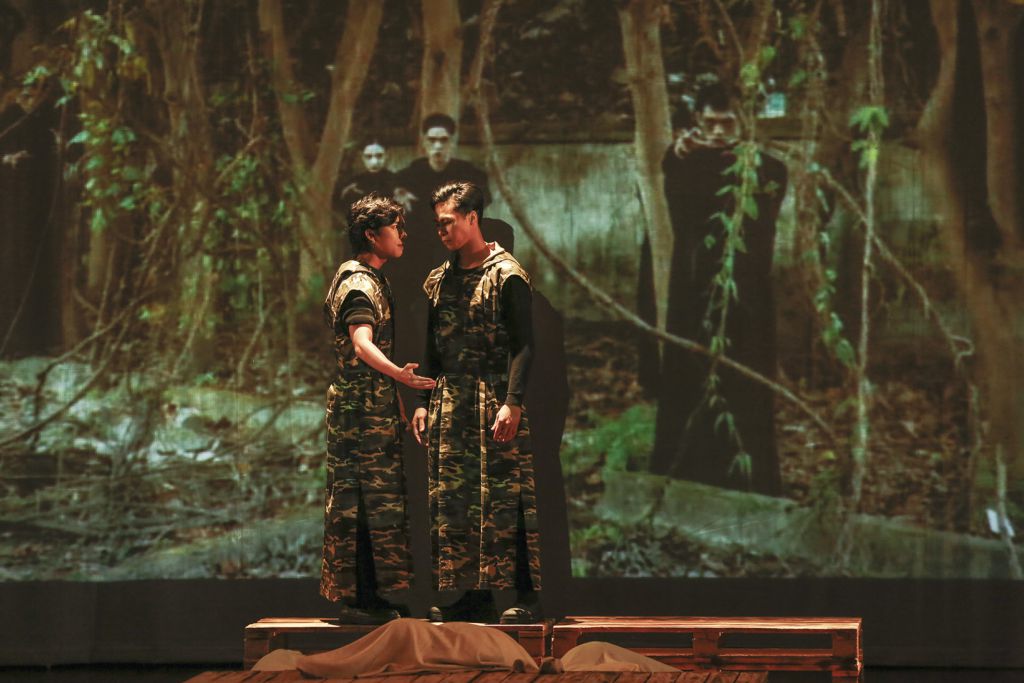
Gespielt wurde Macbeth auf Vietnamesisch, denn „die Studierenden sollten in ihrer eigenen Sprache eine neue Spielweise finden“, so Krassnigg, die selbst kein Vietnamesisch spricht. Als international tätige Regisseurin ist sie es gewohnt auf Englisch zu arbeiten. Dank einer vietnamesischen Schauspiel- und Opernregisseurin, die auch die zentrale Sprechdozentin der Academy ist, gelang die Herausforderung der Übersetzung. „Sie kann Englisch und sie kann Theater – voller Leidenschaft hat sie meinen Unterricht ins Vietnamesische übertragen“, ist Krassnigg froh.
mdw-Lehrende wie Krassnigg und Blankenship an die Hanoi Academy einzuladen, entspricht dem Bedürfnis der Academy und der Studierenden nach einem Unterricht in zeitgenössischer, formenreicher Theaterkunst. Nach wie vor haben traditionelle Theaterformen in Vietnam große Bedeutung. „Die traditionellen Formen sind kunstreich und setzen stark auf Bewegung, Musikalität und Ästhetik, wie etwa das berühmte vietnamesische Wasserpuppentheater. Die Studierenden drängen aber auch auf einen internationalen Markt und wollen andere Schauspieltools kennenlernen“, sagt Krassnigg. Die Regieprofessorin betont die wechselseitige Bereicherung der Universitätspartnerschaft: „Einerseits werden wir mdw-Lehrende von den vietnamesischen Kolleg_innen inspiriert und andererseits interessieren sie sich für unsere Schauspiel- und Regietechniken zur Entwicklung neuer, eigener Theaterformen und -formate.“
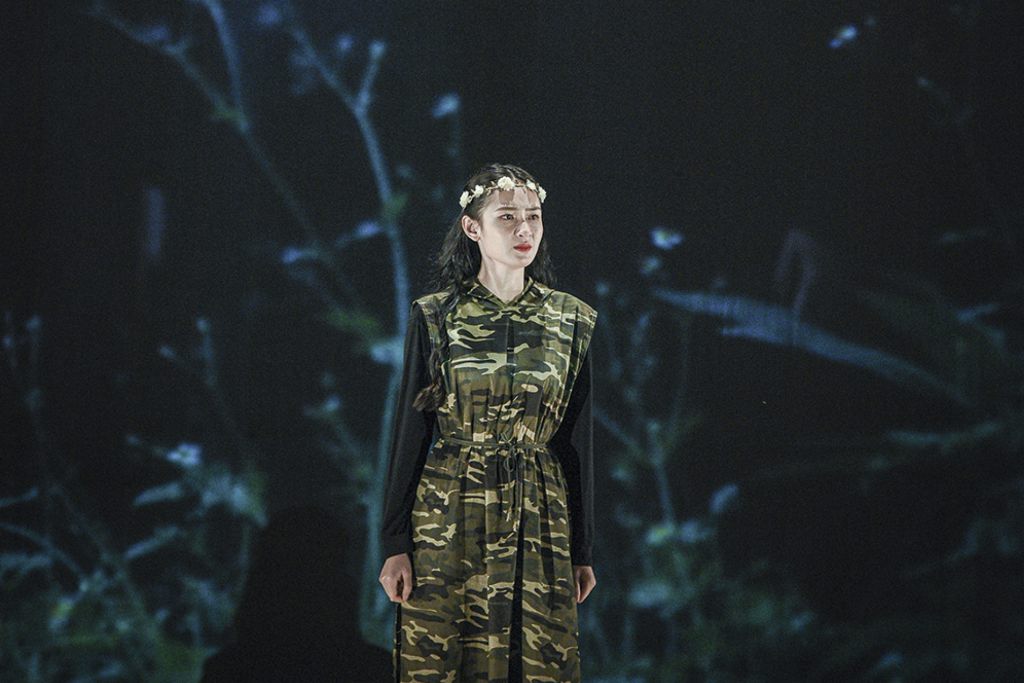
Bei den Studierenden und der jüngeren Generation der Lehrenden in Hanoi ortet Krassnigg eine starke Sehnsucht nach diesem Wandel, der natürlich Diskussionen auslöst. Vorhandene Machtstrukturen und Hierarchien rufen zudem eine gewisse Vorsicht hervor. „Vorsicht bedeutet in der Kunst eine bestimmte Auffassung von Tradition. Kontroversielle Debatten werden aber in Vietnam höflicher ausgetragen als bei uns“, meint Krassnigg. Als Lehrende aus dem Ausland ist viel diplomatisches Geschick nötig, um stets die eigene Haltung zu vertreten und gleichzeitig die Abläufe und Rituale der Gastuniversität zu respektieren. „Es ist ein Auftrag, die Werte der mdw als Lehrende eben auch im Ausland mitzutragen“, betont sie. Vor allem das Empowerment der mitwirkenden Frauen ist ihr ein besonderes Anliegen. „Ich möchte den Frauen vermitteln, ihre Stärke, die sie privat haben, auch auf der Bühne zuzulassen. Ihre Stärke darf nicht im Beruf Halt machen, nur weil es um Hierarchien und Geld geht. Die Diskussion um Machtstrukturen kommt auch in Vietnam an und das kann man durch unsere Arbeit positiv bestärken“, ist Krassnigg überzeugt.
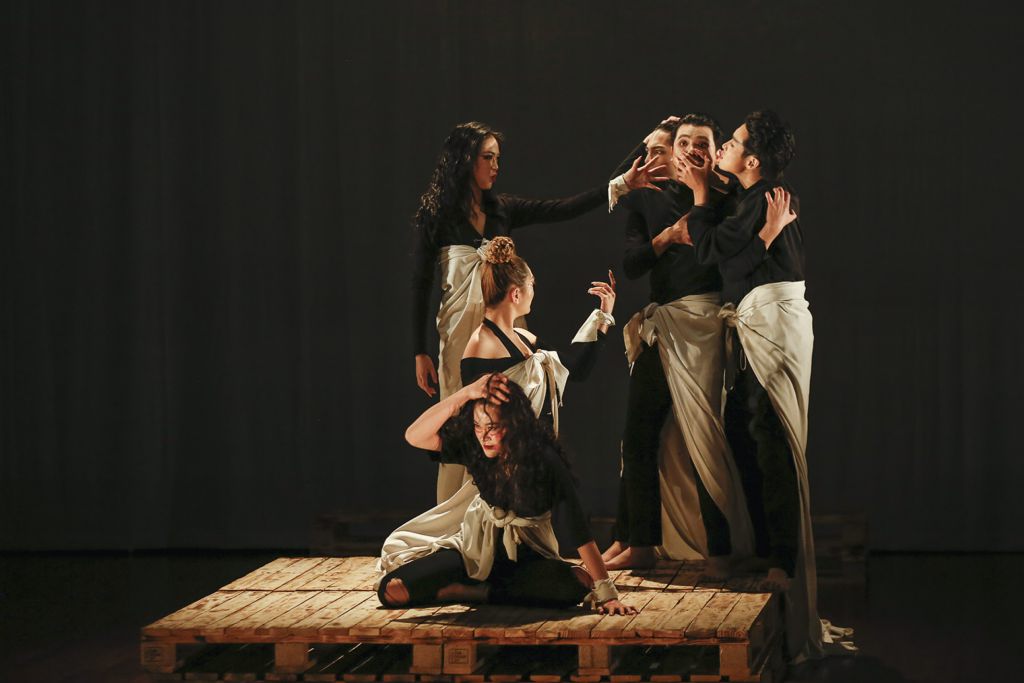
Die Regisseurin greift in ihrer internationalen Unterrichtstätigkeit auf bewährte und im Laufe der Zeit aktualisierte Schauspiel- und Regiemethoden zurück, die ihre Wurzeln in der europäischen Theaterszene haben. „Europäisches Theaterhandwerk ist für internationale Bühnen sehr tauglich“, erläutert Krassnigg. „Es geht darum, dass Schauspieler_innen zeitgenössische gesellschaftliche und individuelle Vorgänge spielen können, auch wenn der Stoff im Gewand eines Klassikers daherkommt.“ Vor allem Macbeth bietet viele Bezüge zu gegenwärtigen gesellschaftspolitischen Realitäten. „Ein ,Zwerg im Mantel eines Riesen‘ ist keine gute Option für einen Lenker oder eine Lenkerin eines Landes oder einer Institution. Das macht das Stück aktueller denn je“, findet Krassnigg.
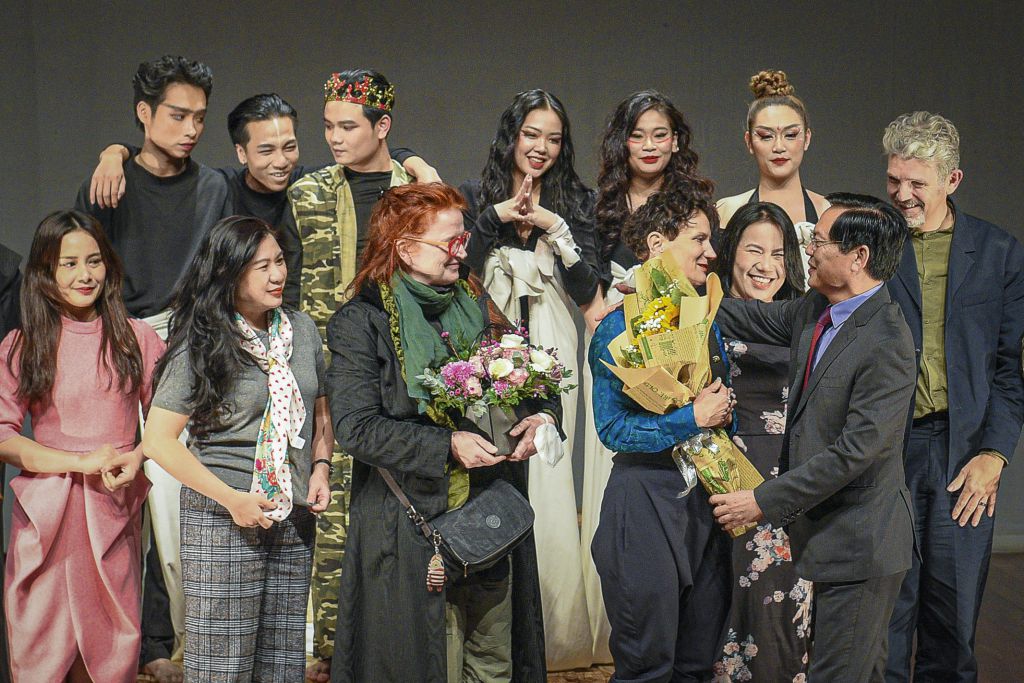
Um den Studierenden auch Übung vor der Kamera zu ermöglichen, hat sie mit ihnen gedrehte Filmsequenzen in die Produktion eingebaut, was bei den Mitwirkenden und beim Publikum sehr gut ankam. Die Verquickung mit filmischer Arbeit stößt auch Überlegungen an, wie künftig Studierende des Max Reinhardt Seminars in Projekte der Partnerschaft involviert werden könnten, um so Reisen und Zeit noch effizienter zu nutzen. Das Interesse der Max Reinhardt Seminar-Studierenden an internationalen Projekten wäre gegeben. „In Zukunft wird das Theater internationaler sein. In der Musik war das immer schon so, im performativen Bereich weniger, da die Sprache eine Hürde ist. Wir lernen aber: Sie darf keine Hürde sein, sondern es gilt, neue Methoden und Projektarten zu entwickeln und es macht durchaus Sinn, an den Universitäten damit anzufangen“, sagt die Professorin.
Für Anna Maria Krassnigg zeigt Macbeth in Hanoi die vielen Möglichkeiten der internationalen Zusammenarbeit und verdeutlicht, was uns verbindet: „Die Kunst fungiert als Transportmittel. Egal welche Sprache man spricht: Die performative Sprache ist selbst eine Sprache.“

